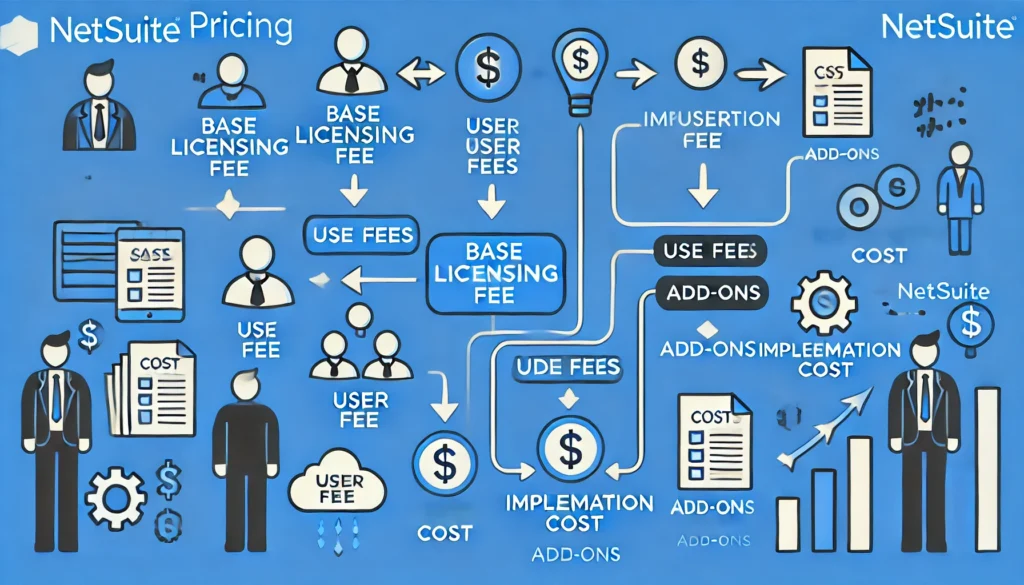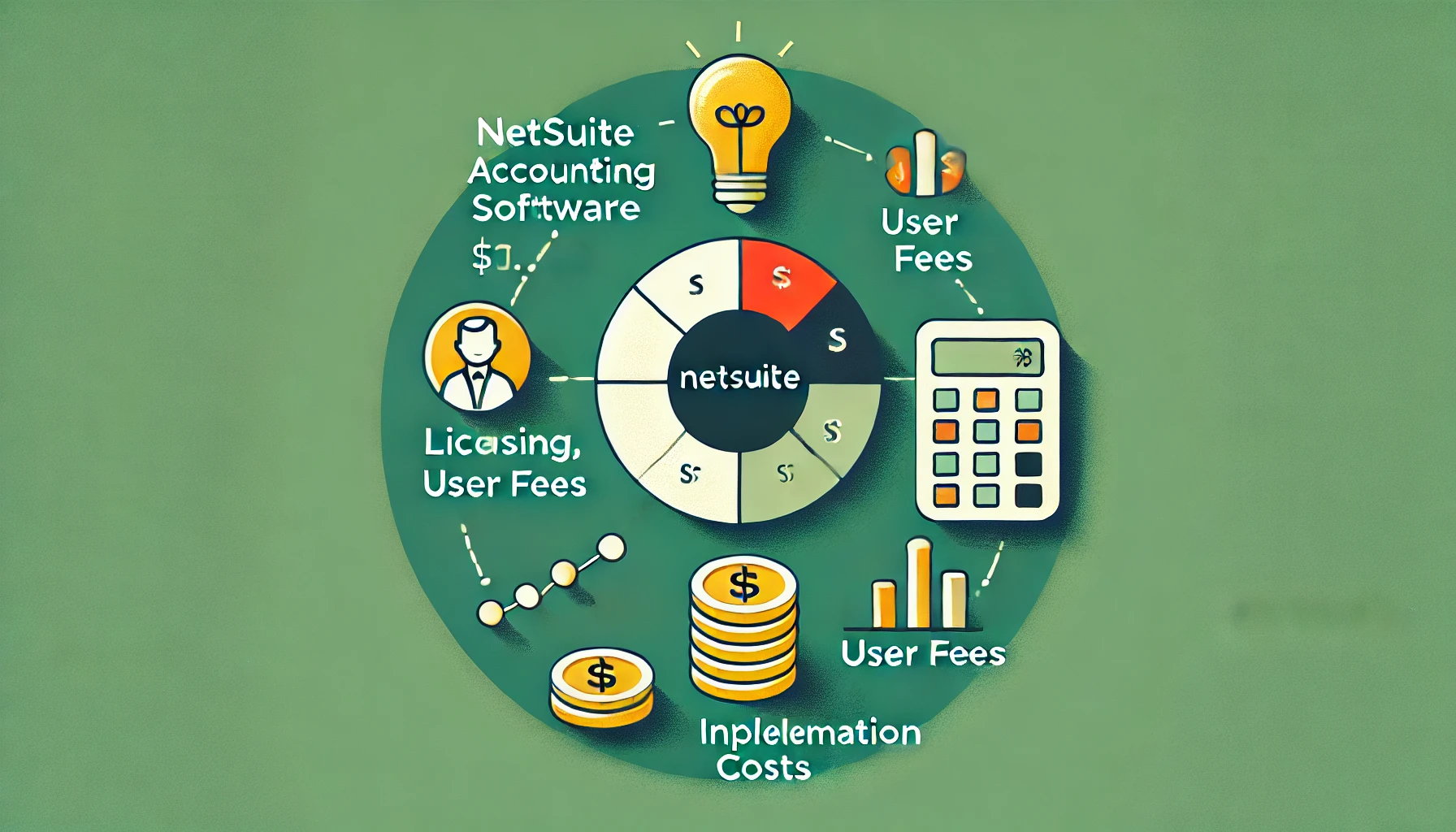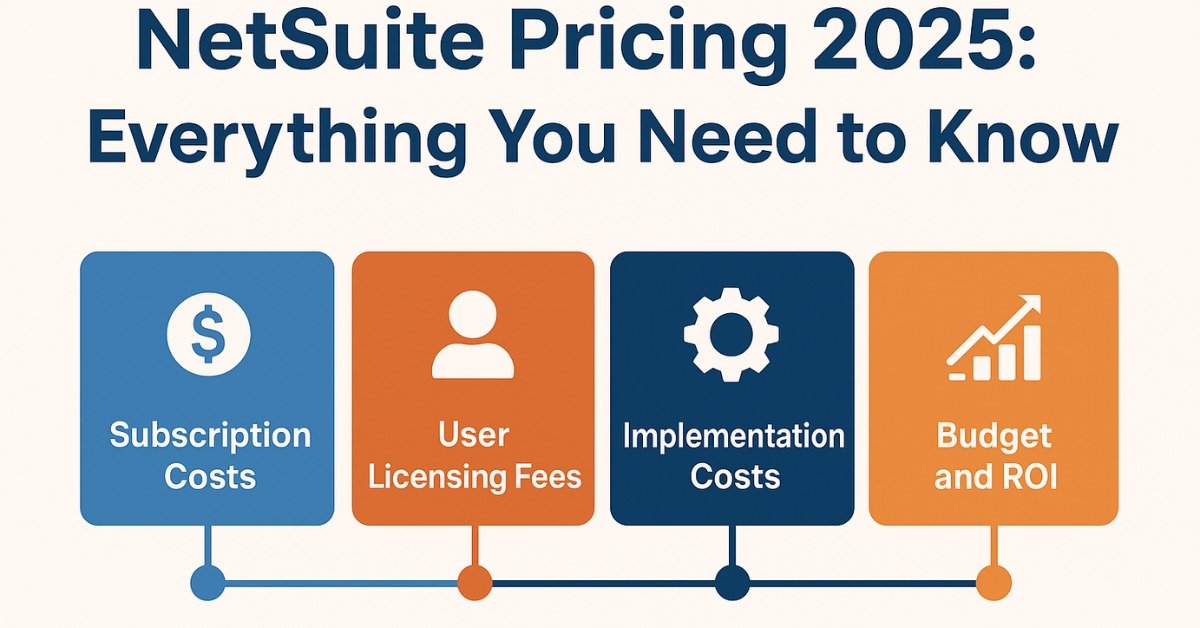NetSuite accounting software is renowned for its advanced capabilities, scalability, and seamless integration into business operations. As a cloud-based ERP solution, NetSuite offers much more than basic accounting software, but its pricing model can be complex for potential buyers. In this detailed guide, we’ll break down the costs of NetSuite accounting software, factors influencing those costs, and how businesses can maximize its value.

Table of Contents
ToggleWhat Is NetSuite Accounting Software?
NetSuite accounting software is a leading component of Oracle’s NetSuite ERP suite. It provides businesses with tools for managing financial data, automating reporting, and ensuring compliance with regulations. Unlike standalone systems, NetSuite accounting software integrates seamlessly with other modules, making it an ideal choice for growing enterprises.
With features like real-time dashboards, automated workflows, and multi-currency management, NetSuite transforms financial operations into a streamlined, data-driven process. But how much does it cost, and is it worth the investment?
Factors Influencing NetSuite Pricing
The cost of NetSuite accounting software is not one-size-fits-all. Pricing is tailored based on several variables:
- Number of Users: NetSuite operates on a subscription-based model where user count plays a significant role. For example, a small team may have lower costs compared to larger organizations with dozens of users.
- Modules and Features: NetSuite offers modular pricing, allowing businesses to pay only for the features they need. Companies requiring advanced modules like inventory management, customer relationship management (CRM), or project accounting will incur higher costs.
- Implementation Complexity: Customization and integration requirements during implementation significantly affect the price. Businesses that need extensive tailoring or integration with third-party applications may face higher setup fees.
- Business Size and Scope: Larger enterprises with complex operations and multiple subsidiaries often require more robust configurations, impacting the overall cost.
- Support Level: NetSuite offers several tiers of support, ranging from basic assistance to premium 24/7 help. Premium support plans typically come with added costs.
NetSuite Pricing: A Detailed Breakdown
NetSuite pricing includes several components, each tailored to the unique needs of a business. Here’s an estimate of costs:
- Base Licensing Fee: The base subscription starts at approximately $999 per month, which covers essential features. Businesses with additional requirements will pay more.
- User Fees: Additional users cost around $99 per user per month, making it essential for businesses to plan their user base carefully.
- Implementation Costs: Implementation fees vary widely based on the level of customization required. Costs can range from $10,000 to $100,000, depending on the complexity of the project.
- Add-Ons and Advanced Modules: Businesses needing advanced features like multi-currency management, global accounting, or tax compliance should expect additional fees. These add-ons can cost anywhere between $5,000 to $25,000 annually.
- Annual Maintenance Fees: To ensure software updates and ongoing support, businesses typically pay around 22% of their annual licensing fee for maintenance.

Why Is NetSuite Worth the Investment?
While the initial cost of NetSuite accounting software may seem steep, the benefits it offers often outweigh the expense.
- Scalability: NetSuite grows with your business. Whether you’re a startup or a multinational company, its flexible architecture ensures seamless scaling.
- Automation: With automated workflows and reporting, businesses can reduce manual errors and save time.
- Real-Time Insights: NetSuite’s dashboards provide real-time data, empowering businesses to make informed decisions quickly.
- Compliance and Security: NetSuite ensures businesses meet financial regulations while safeguarding sensitive data with enterprise-grade security measures.
Alternatives to NetSuite Accounting Software
Before investing in NetSuite, it’s helpful to compare it with other accounting solutions:
- QuickBooks Online: Ideal for small businesses with simple needs, starting at $25 per month.
- Xero: Best for startups, with pricing as low as $13 per month.
- SAP Business One: A strong contender for mid-sized businesses, though its pricing is on par with NetSuite.
While these alternatives are budget-friendly, they lack the robust features and scalability that NetSuite accounting software offers, especially for growing businesses.
How to Reduce NetSuite Costs
If NetSuite’s price seems prohibitive, consider these strategies to manage expenses:
- Start Small: Opt for essential modules initially and expand as your business grows.
- Negotiate Terms: Work with a NetSuite sales representative to explore discounts or custom pricing options.
- Leverage Third-Party Implementation Partners: Experienced consultants can reduce implementation timelines and costs.
- Plan User Access Strategically: Limit access to necessary personnel to save on user fees.
Maximizing Value with NetSuite
Investing in NetSuite accounting software is not just about acquiring a tool—it’s about transforming the way your business operates. Its advanced features help companies optimize financial management, improve decision-making, and achieve sustainable growth.
By automating routine processes, reducing errors, and providing real-time insights, NetSuite empowers businesses to focus on strategic goals rather than day-to-day tasks.
Conclusion
The question “How much is NetSuite accounting software?” depends on your business needs, size, and customization requirements. While the costs can vary, the value it delivers in terms of efficiency, scalability, and automation makes it a worthwhile investment for businesses of all sizes.
If you’re considering an upgrade to your financial management systems, NetSuite accounting software offers the tools and capabilities to drive your business forward.



